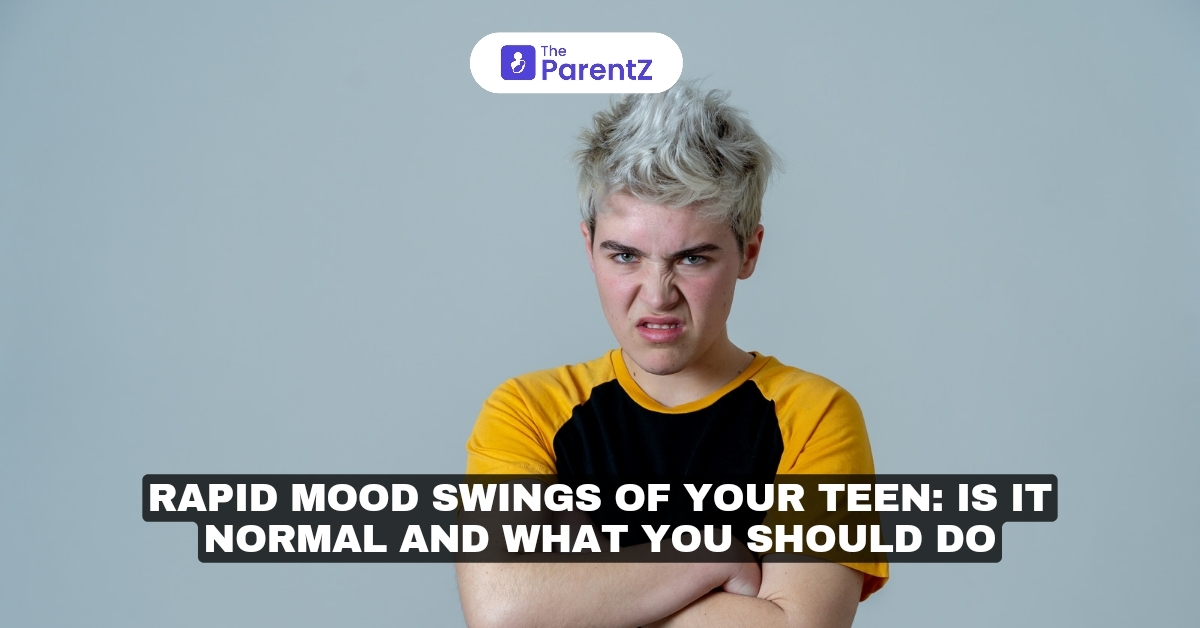From laughing uncontrollably at a meme to slamming their bedroom doors the next moment, mood swings are real. And if you’re raising a teen, you probably have witnessed their rapid-fire mood swings.The spoiler alert—it is normal. But this truth doesn't make anything easier. Here’s your time to deal with your kids emotional fluctuation, which is even faster than a game.
Read this article to learn about what you can actually do about it.
Mood Swings: Are They Normal?
Yes, it is absolutely normal for teens to experience mood swings. And you can blame it on hormones and social pressures. Adolescence is a time of rapid change, and with that comes emotional instability. A study by the National Institutes of Health in 2018 found that mood swings are common during adolescence as the brain undergoes significant growth and hormonal changes. Besides, teens often produce more estrogen and testosterone, which leads to emotional imbalance.
According to the American Academy of Child and Adolescent Psychiatry (AACAP), roughly 20% of teenagers will experience at least one episode of mood swings that interfere with daily life. So, the next time you find your teen confused in the pendulum of emotions, it is not related to your parenting, but the biology.
Tips To Deal With Your Teen Rapid Mood Swings
Here are some helpful tips for parents to deal with their teens abrupt mood swings.
Boundaries But With Flexibility
While boundaries are essential, they must not be too rigid. The Journal of Research on Adolescence in a study showed that teens with parents who set clear yet flexible boundaries were better at handling stress and emotional regulation. For example, if your teen outbursts whenever you ask about their homework, try asking how you could help them with their homework instead of asking, ‘Why is it not done yet?’ This approach will help reduce stress and initiate open communication.
Calmness in the Storm
Teens are experts at pushing buttons, but reacting with anger and frustration will fan the flames. Rather, be their calming place at times of emotional storms, even if they lash out. According to a study released by Development Psychology, it was found that teens regulate their emotions better when their parents remain calm. This doesn’t mean letting them walk all over you. However, a little humor during such circumstances can lighten by the extremes.
An Eye on the Red Flags
Even though drastic mood swings are a part of adolescence, it is important to identify the red flags that could be a reflection of some underlying mental concerns. Here are some signs that you must look out for.
- Consistent sadness and irritability
- Sudden drop in academic performance
- Staying away from friends and family
- Self-abuse or self-harm
Takeaway
The fact is—parenting a teenager is messy, and sometimes you’re going to get it wrong. However, what matters at the end of the day is that you offer your best love and support to your little ones. With some patience and communication, you can deal with even the most difficult circumstances together.








Be the first one to comment on this story.